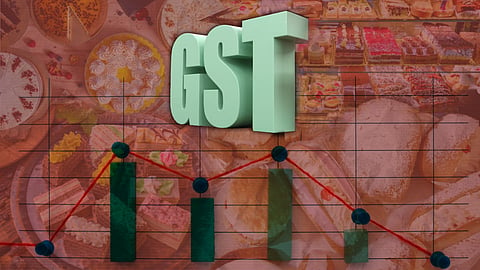

When it comes to gold, it’s not unheard of for customers and stores to bill the components of a piece of jewellery ‘separately’ to ensure their final cost is fair — stone cost versus gold cost, for instance. But while it may make financial sense to complicate matters for something as expensive as gold, it seems we’re at a situation where small businesses have to do the same for a cream bun. Bun, 100 gm, at 0% GST. Vanilla Cream, 10 gm, at 5% GST.
As funny as it sounds, this is the conundrum facing the food industry across India, as presented by the Managing Director of popular Coimbatore restaurant chain Sree Annapoorna Hotel, D Srinivasan. In a meeting with Union Finance Minister Nirmala Sitharaman, he highlighted the industry’s grievances over inconsistencies in GST, by pointing out how a bun and a cream bun are taxed differently. As a result, he joked, customers prefer buying the bun and cream separately to make their own cream buns. Because, if you bought a cream bun, you’d have to pay 18% GST as it comes under the ‘pastry’ category.
While the business owner who brought up the issue was made to apologise to the Finance Minister for — well, his half-baked understanding of how Q&As work in this regime — the problem presented by him is one that ails most businesses in the food industry, especially small ones that make just enough money above the taxation threshold. And they have issues with every aspect of GST.
Varying tax rates that make no sense
Srinivasan’s point about the differences in GST rates between a bun and a cream bun is just one particular example. The rates vary from 0% to 18% for different bakery items, including separate rates for sweets and savouries; the same applies to milk and milk products.
It’s like this – let’s say you are trying to make a sandwich. The plain bread is tax-free. But if you need toasted bread, there is a 5% tax, and if you decide to add butter or cheese, you’d have to pay 12% GST. So if you’re on a budget, your best bet is to get a loaf of plain bread, toast it yourself, get a packet of milk – which, by the way is tax-free – and make your own butter. This — as anyone who cooks knows — only works if you’re planning to make multiple sandwiches and use the butter for other dishes. And let’s not even go to the cost of LPG – with 18% GST, it adds up to Rs 805 for a cylinder in Bengaluru.